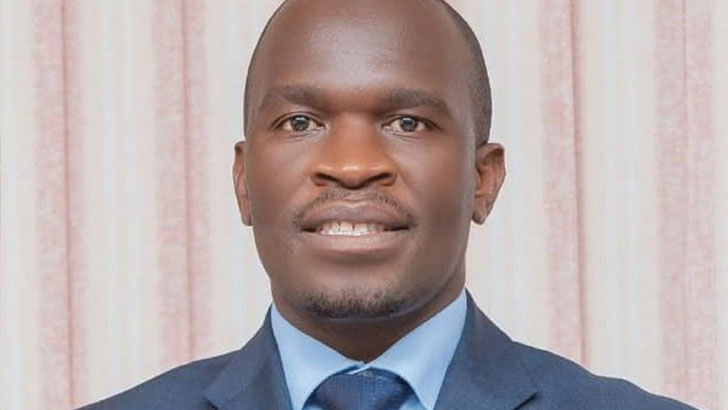Previously, Malawi was a hub for illicit trade in wildlife products. To curb it, authorities in 2017 amended the National Parks and Wild Life Act to bring deterrent punishments in wildlife offences. Jail-term was later pushed to up to 30 years from mere fines or two or three years. Our News Analyst FRANK NAMANGALE talks to Attorney General THABO CHAKAKA-NYIRENDA to find out more about what government is doing on this.
Chakaka-Nyirenda: We know that criminals
think way ahead of us
. What is government doing about wildlife crimes?
. Government is still pushing through pieces of legislation to completely stop wildlife crimes. I am convinced that political will is there to end these crimes. Government has made remarkable strides in coordinating with a global anti-money-laundering and terrorist financing watchdog, the Financial Action Task Force (Fatf) and other institutions, to end the crimes. The maximum punishment for money-laundering is life imprisonment and, according to the broad scope of money-laundering offence, mere possession of wildlife specimen would amount to a substantive money-laundering offence. So far, government has provided extensive training to law enforcement officers and judicial officers.
. What else is being done to serve as a deterrent to would-be offenders?
. There are several measures, but I can mention that the initiation of criminal prosecutions against perpetrators of wildlife crimes and the resultant verdicts are being widely reported in both the print and the electronic media including social media. This serves as a deterrent to would-be offenders. Since June 2016, over 600 convictions have been registered. There is also great co-ordination among law enforcement agencies when pursuing wildlife-related offences. As a result of these strides and the recalibration of the sentencing scheme in wildlife related offences, trafficking of wildlife offences has significantly declined. But we know that criminals think way ahead of us. Malawi has had difficulties in getting cooperation from other countries. Criminal prosecution may be difficult to achieve meaningful results if effective co-ordination among countries and intra-agency co-ordination to pursue civil litigation targeting proceeds of illegal wildlife trade and trafficking, including enforcement of civil judgements, is not given a chance.
. What strategies has government devised to curb wildlife crime?
. They include establishment of Inter Agency Committee on Combating Wildlife Crime, establishment of the Wildlife Crimes Investigation Unit, introduction of the Wildlife Dog Directive Unit, deployment of wildlife officers at the ports of entry and ports of exit and collaboration with neighbouring countries on investigation and prosecution of wildlife offences. As we speak, two convicts are each serving 18-year jail sentences for poaching a black rhino while another is serving 14 years for wildlife-related offences.
. What cases do you remember before the Act was amended?
. Before the amendment of the National Parks and Wild Life Act, there was a case of two Malawian brothers who were, on May 31 2013, found in possession of 781 pieces of ivory concealed under bags of cement in a truck from Mbeya in Tanzania, going to Lilongwe. The seizure of the contraband and the subsequent arrest of the accused persons occurred at Phwezi roadblock in Rumphi District. The ivory which weighed 2 640 kilogrammes was valued at K4.4 billion. The investigators estimated that around 435 elephants were killed for their tusks.
Financial Intelligence Authority (FIA) was called upon to analyse financial transactions by the accused persons. The analysis uncovered remittances from senders located in Hong Kong and China through Western Union in favour of the accused persons. The analyses by FIA did not make business or economic sense. The only inference that was drawn was that the senders of the money were part of the criminal syndicate to smuggle ivory and that the transmitted funds constituted part of the illegal operation value chain. The accused persons were charged in the High Court with money-laundering and illegal possession of protected specimens. They were convicted on July 28 2015 and fined K2.5 million or in default to serve a five-year jail term. They paid the fines.
Talking of extradition treaties countries sign, what more can be done?
It is imperative that extradition treaties, Mutual Legal Assistance Agreements in Criminal Matters and Mutual Legal Assistance Agreements in Civil Matters are negotiated and signed by countries that are vulnerable to wildlife crimes. I believe United Nations [UN] Office on Drug and Corruption is very suited to facilitate the drafting and execution of such agreements or treaties. I accordingly request this UN office to facilitate such a noble cause including providing financing of the activities associated with the signing of the suggested international agreements.
What connection is there between wildlife and economic development?
.The preservation of wildlife is broad, covering both animals and natural vegetation. Wildlife conservation guarantees the enjoyment of the natural world by human beings. Wildlife is also a source of foreign currency for most countries as it attracts tourism and invariably contributes to the country’s balance of payment and overall Gross Domestic Product (GDP). The UN Sustainable Development Goals (SDGs) sets out 12 targets relating to the sustainable use of the land ecosystems, which include protection of wild animals.
Specifically, Goal 15.7 enjoins member states to take urgent action to end poaching and trafficking of protected species of flora and fauna and address both demand and supply of illegal wildlife products. Malawi is a state party to the Convention on International Trade in Endangered Species of Wild Flora and Fauna. The products of wildlife in Malawi include pangolin skin, ivory, hippo teeth and rhino horns. Before 2016, convicts usually escaped with the payment of fines. This was not considered dissuasive enough as it was incompatible with the scale and gravity of the offences that were committed.n
The post AG eager to crackwildlife crimes first appeared on The Nation Online.
 Moni Malawi
Moni Malawi 
